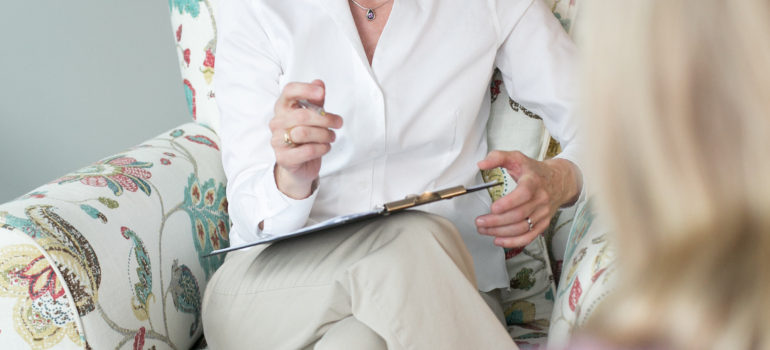by Theresa Shank, Ph.D.
After finishing my post-doctoral fellowship in Michigan, I accepted my first “real” job as a supervisor, researcher, and evaluator of young children at the Kennedy Krieger Institute. While I loved the work and being part of inter-disciplinary teams, I really missed doing therapy. In that job, I would test children, and identify their strengths and areas of growth, but never knew what happened after they left my office. As a therapist, you have the opportunity to “travel along” with the children as they learn new skills, face challenges, and learn their strengths. After 5 years at KKI, I applied for a position that allowed me to still evaluate children, but also to provide them treatment.
During my first year in this position, I worked with couples, children, teens, and young adults. But there was one child I just could not help. I had learned about OCD in graduate school, but had never treated someone with the disorder. So when this child came along, though I could see how much pain she was in, I did not know how to effectively help her. When I moved to private practice, I “took” this child with me. I started to read about OCD and to teach myself how to treat it. I attended my first International OCD Foundation conference. I participated in an intensive training offered by IOCDF, and soon after, I connected with a local expert living in the area. Together, with two other therapists, we formed a peer consultation group to help each other solve challenges we faced in treating the disorder. I still participate in a peer consultation group, 17 years later. And if you were to listen in on my ride to and from work, you are likely to hear a podcast about treating OCD in children, teens and adults. OCD is not just a condition I treat; it is really the focus of my career.
OCD is a fascinating disorder that presents in similar, yet unique ways. To treat it effectively, the therapist needs to use all of their skills to understand, who is this person before me, what are her values and passions, how does she process information best, and how can I help her find a way to understand her disorder enough to be able to say, “I know exactly what to do.” My goal is to help my clients eliminate unnecessary suffering – the kind that comes from giving too much meaning to the intrusive thoughts, urges, and compulsions that arise from OCD.
One of my greatest joys is to help a child go from being frightened, overwhelmed, and hopeless, to feeling strong, confident and re-engaged with life. To hear them laugh with abandon, to see our work go from intensive coaching to light hearted conversations about vacations, fun times with friends, and peaceful nights with good rest. I know each child can get there – I love that we are a team together on that journey.
That young girl who I did not know how to help 20 years ago shaped the focus of my career. At the time, I did not know how to help her. I hope she found someone who did. She gave me a gift of showing me what I did not know and inspiring me to bet better. And in doing that, she helped countless other children have a different outcome addressing OCD.

